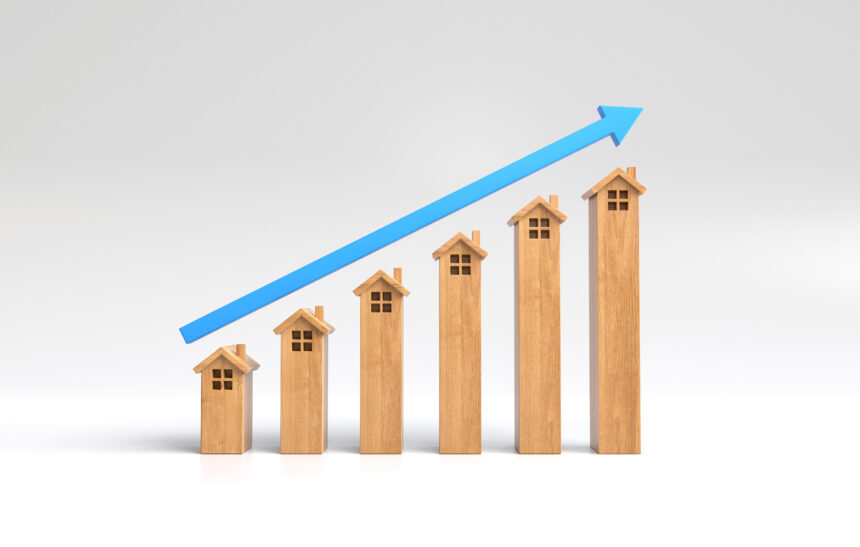The real estate industry is undergoing significant transformation as we move further into 2025. Economic conditions, technology advancements, shifting consumer behaviors, and evolving regulations are reshaping the way people buy, sell, and invest in properties. Understanding these changes is essential for industry professionals, homeowners, and investors who want to stay ahead in a competitive market. Emerging trends like smart homes, AI-driven real estate solutions, blockchain transactions, and sustainability are becoming key drivers of the industry’s future. As urbanization continues and demand patterns shift, the role of real estate professionals is evolving, making it crucial to stay informed about the latest industry trends.
Smart Homes and AI Integration
Technology has taken center stage in real estate, and smart homes are no longer a luxury but an expectation for modern buyers. Homebuyers and renters are now prioritizing properties with integrated smart features that enhance security, energy efficiency, and convenience. Features such as AI-powered thermostats, smart lighting, advanced security systems, and automated home assistants are becoming standard.
Artificial Intelligence (AI) is also revolutionizing the real estate experience. AI-driven property recommendation systems help buyers find homes based on their preferences, budget, and lifestyle needs. Chatbots and virtual assistants are assisting real estate agents by handling inquiries and automating scheduling. Predictive analytics is another game-changer, allowing investors to forecast market trends and identify high-return opportunities with greater accuracy. As smart technology continues to advance, real estate professionals who embrace AI and home automation will have a competitive edge in the market.
Sustainable and Eco-Friendly Housing
Environmental consciousness is no longer just a trend—it’s a movement that is redefining the real estate landscape. With climate change concerns on the rise, both buyers and developers are prioritizing sustainability. Homes built with eco-friendly materials, solar panel installations, and energy-efficient appliances are in high demand.
Green certifications, such as LEED (Leadership in Energy and Environmental Design) and Energy Star, are influencing property values, as buyers are willing to pay a premium for sustainable homes that reduce long-term energy costs. Governments and financial institutions are also encouraging eco-friendly development by offering tax incentives and lower mortgage rates for energy-efficient properties. Additionally, green building practices, such as water conservation systems, rainwater harvesting, and smart waste management, are gaining popularity.
Virtual and Augmented Reality in Real Estate
Technology is also enhancing the property-buying experience through Virtual Reality (VR) and Augmented Reality (AR). These tools have become essential for real estate agents, developers, and investors, providing immersive experiences that streamline the decision-making process.
With VR, potential buyers can take virtual property tours from anywhere in the world, eliminating the need for physical visits, saving time, and expanding market reach. AR, on the other hand, allows clients to visualize potential home renovations, interior designs, and structural modifications before making a purchase. These technologies are particularly beneficial for international investors and long-distance buyers looking for properties without physically visiting multiple locations. As VR and AR technology continues to evolve, they will play an even greater role in shaping the real estate industry.
Rise of Co-Living and Flexible Housing
The traditional concept of homeownership is shifting, especially among millennials and Gen Z buyers. Affordability challenges, urban migration, and changing lifestyle preferences have led to an increase in co-living and flexible housing solutions. Co-living spaces are gaining popularity, offering residents shared amenities, common areas, and community-driven environments at a lower cost than traditional housing.
Similarly, flexible housing solutions, such as short-term rentals and furnished apartments, cater to digital nomads, traveling professionals, and temporary residents. With the rise of remote work, people are seeking mobility without committing to long-term leases or homeownership. Real estate investors and developers are capitalizing on this trend by creating properties that cater to the needs of this transient workforce, making flexible housing one of the most promising segments in the real estate industry.
Blockchain and Real Estate Transactions
Blockchain technology is disrupting traditional real estate transactions by providing enhanced security, transparency, and efficiency. The introduction of smart contracts enables automated and tamper-proof agreements, reducing fraud risks and eliminating unnecessary paperwork.
Tokenization of real estate assets is also gaining traction, allowing investors to buy fractional ownership in properties. This innovation makes real estate investment more accessible to a broader audience, lowering barriers to entry for those who may not have the capital to purchase entire properties. As blockchain adoption continues, property transactions will become faster, more secure, and more cost-effective.
The Impact of Interest Rates on Market Dynamics
Interest rates are a key factor influencing the real estate market. When interest rates are low, homebuyers and investors find it easier to secure affordable financing, leading to increased property sales and higher demand. However, rising interest rates can slow down the market, as mortgage payments become more expensive.
With global economic uncertainties and central banks adjusting monetary policies, real estate professionals must stay informed about interest rate fluctuations. Strategic timing of purchases and refinancing can significantly impact investment profitability. Additionally, alternative financing options, such as adjustable-rate mortgages and seller financing, are gaining traction as interest rates fluctuate.
The Shift Toward Suburban and Secondary Cities
Urban living has long been the preferred choice for many buyers, but post-pandemic trends have led to a shift toward suburban and secondary cities. High living costs, traffic congestion, and remote work flexibility have encouraged homebuyers to explore more affordable and spacious alternatives outside major metropolitan areas.
Developers are responding by expanding housing projects in suburban and emerging markets, offering modern amenities while maintaining affordability. This trend is reshaping real estate investment strategies, as secondary cities and growing suburban areas present lucrative opportunities for investors seeking higher returns and lower property acquisition costs.
The Future of Real Estate Agents and Digital Transactions
The role of real estate agents is evolving with the rise of digital transactions and automated processes. While technology has streamlined many aspects of buying and selling homes, the human element remains crucial. Real estate professionals are shifting from traditional sales roles to advisory and consultancy roles, helping clients navigate complex transactions, negotiate better deals, and understand market trends.
Online property platforms and digital marketplaces are making it easier for buyers and sellers to connect without intermediaries. However, experienced real estate agents who provide value through market insights, negotiation expertise, and personalized service will continue to thrive in the industry.
Final Thoughts
The future of real estate is being shaped by technological advancements, sustainability initiatives, shifting consumer behaviors, and evolving market dynamics. Smart homes, blockchain-powered transactions, co-living spaces, and digital transformation are redefining the industry. Whether you are a buyer, seller, investor, or real estate professional, staying ahead of these trends will be essential for success. Adapting to innovation and embracing change will ensure long-term profitability and growth in the ever-evolving real estate landscape.






